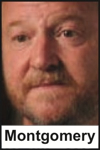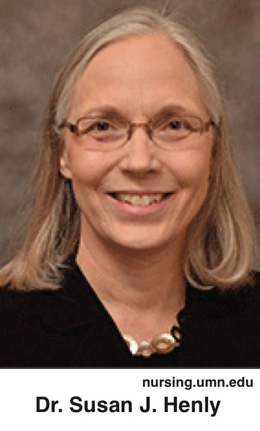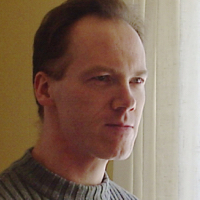Rascals case in brief
In the beginning, in 1989, more than 90 children at the Little Rascals Day Care Center in Edenton, North Carolina, accused a total of 20 adults with 429 instances of sexual abuse over a three-year period. It may have all begun with one parent’s complaint about punishment given her child.
Among the alleged perpetrators: the sheriff and mayor. But prosecutors would charge only Robin Byrum, Darlene Harris, Elizabeth “Betsy” Kelly, Robert “Bob” Kelly, Willard Scott Privott, Shelley Stone and Dawn Wilson – the Edenton 7.
Along with sodomy and beatings, allegations included a baby killed with a handgun, a child being hung upside down from a tree and being set on fire and countless other fantastic incidents involving spaceships, hot air balloons, pirate ships and trained sharks.
By the time prosecutors dropped the last charges in 1997, Little Rascals had become North Carolina’s longest and most costly criminal trial. Prosecutors kept defendants jailed in hopes at least one would turn against their supposed co-conspirators. Remarkably, none did. Another shameful record: Five defendants had to wait longer to face their accusers in court than anyone else in North Carolina history.
Between 1991 and 1997, Ofra Bikel produced three extraordinary episodes on the Little Rascals case for the PBS series “Frontline.” Although “Innocence Lost” did not deter prosecutors, it exposed their tactics and fostered nationwide skepticism and dismay.
With each passing year, the absurdity of the Little Rascals charges has become more obvious. But no admission of error has ever come from prosecutors, police, interviewers or parents. This site is devoted to the issues raised by this case.
On Facebook
Click for earlier Facebook posts archived on this site
Click to go to
Today’s random selection from the Little Rascals Day Care archives….
Click for earlier Facebook posts archived on this site
Click to go to
Today’s random selection from the Little Rascals Day Care archives….
How much like Penn State were day-care cases?
Jan. 11, 2012
“It’s worth remembering, in the 1980s we had a whole spate of false accusations of… sexual abuse of children. The McMartin Preschool, all those supposed satanic cults in day care centers, turned out to be false…. It’s worth it to remind people of that.”
– Legal analyst Jeffrey Toobin, interviewed on CNN (Nov. 15) about the Penn State case
In fact, deep distinctions separate Penn State and the “multi-victim, multi-offender” – MVMO, in the sex-crime argot – accusations typified by McMartin and Little Rascals.
Since 1995, Ontario Consultants on Religious Tolerance has investigated 40 alleged MVMOs at 24 locations around the world. Number of substantiated instances of ritual abuse: zero.
According to its research, “Any criminal acts were non-ritual abuse by a single perpetrator… Almost all the crimes with which people were charged never happened.”
Regardless, Toobin’s reminder is a welcome counterpoint to the Judge Nancy Grace school of instant verdicts.
N.C. law stacked deck against defendants
Oct. 17, 2011
The two largest ritual-abuse day-care cases – Little Rascals in Edenton and McMartin in California – bore many similarities but McMartin resulted in not a single conviction.
 I asked Mark Montgomery, who in 1995 successfully argued Bob Kelly’s case before the North Carolina Court of Appeals, why that might have been:
I asked Mark Montgomery, who in 1995 successfully argued Bob Kelly’s case before the North Carolina Court of Appeals, why that might have been:
“Each state has its own criminal laws, rules of procedure and evidence, etc. … Several features of the law in North Carolina gave prosecutors an advantage.
“First, the prosecution interviewed all the children attending Little Rascals Day Care. Most said they had seen no abuse. The law allowed the prosecution to withhold those interviews from the defense. And the defense was not allowed to interview the children. So all the jury heard were the stories of the 12 children who were the subject of indictments.
“Second, the law allowed the state’s expert witnesses to testify that they believed the children’s claims.
“Third, the defense was not allowed to conduct its own physical or psychological examinations of the children.
“Fourth, North Carolina had (and has) very liberal rules for the admission of hearsay by children in these cases. Almost anything a child says out of court can be used by the jury as substantive evidence of guilt. An effective prosecution strategy was to enlist the parents to elicit allegations of abuse. For months, parents, who were told their children had been abused, pleaded with their children to ‘disclose.’ Some eventually did. The prosecution then called the parents as witnesses to testify to what their children said, even if the children themselves did not testify.”
Dog bites man: ‘Paper will not be retracted’
 Aug. 26, 2015
Aug. 26, 2015
In November 2012 the journal Nursing Research declined my request to retract Susan J. Kelley’s 1990 article based on the existence of “satanic ritual abuse” in day cares. The editor contended that “Conditions that would lead to a retraction are not present.”
Nursing Research having since installed a new editor, I recently tried again. This time I was able to include two important academic developments: Richard Noll’s expose of the “satanic ritual abuse” movement in Psychiatric Times and Dr. Allen Frances’ personal apology for failing to do more to challenge that movement.
This is an excerpt from the response I received from editor Susan J. Henly, professor emerita, University of Minnesota School of Nursing:
“As I understood it, your argument for retraction (of ‘Parental Stress Response to Sexual Abuse and Ritualistic Abuse of Children in Day-care Centers’) was based on the rationale that: the title embraced and promoted the existence of ritual sexual abuse in day cares that did not exist, and that not a single respected academic or professional would be willing to give credence to claims about ritualistic sexual abuse from the times during which the research was conducted.
“In response, I re-read Kelley et al. (1990) many times, reviewed background information, contacted the author, and communicated with the editor of another journal that has published papers on child sexual abuse by Dr. Kelley. Documents related to the original peer review of the Nursing Research paper are not available, and the Editor (Dr. Florence Downs) who accepted the paper is deceased.
“I searched for other papers on this topic from the 1980s to the present and did not locate any, including other original research by Dr. Kelley, that had been retracted. I discussed the methods of the research with Dr. Kelley; she verified what was stated in the paper, which I found to be in accord with expectations for scientific standards and ethical conduct of research. The editor I contacted about a related paper said the journal stood by the integrity of their review process and quality of the scholarship that had been published.
“With regards to issues related to credence of claims about ritualistic sexual abuse, Finkelhor, Williams, Burns, & Kalinowski (1988) included this sort of abuse in their national study of sexual abuse in day care. More recently, Salter (2013) provided a critical overview of debates arising from allegations of organized sexual abuse and addressed issues related to terminology. (Dr. Michael Salter is Senior Lecturer in Criminology at the University of Western Sydney). Also, a book by (Ross) Cheit (2014) summarized scholarly work that uses empirical data to challenge the view that cases from the 1980s were based on moral panic of the type described in your message. (Dr. Cheit is Professor of Political Science and Public Policy at Brown University.)
“Findings from the many papers (thousands) in the peer-reviewed literature focused on the forensic, sociological, political, family and health aspects of child sexual abuse will no doubt, with time, contribute to better understanding that can be used to keep children from harm as well as protect the rights of those wrongly accused – both issues that are of critical importance to all citizens.
“Retraction is a mechanism for correcting the literature and alerting readers to publications that contain such seriously flawed or erroneous data that their findings and conclusions cannot be relied upon (Committee on Publication Ethics, n.d.). Criteria for retraction of a paper include: clear evidence that findings were unreliable, the paper was redundant or plagiarized, or the research was conducted unethically.
“Using the process described above, I did not find evidence of any of these concerns in Kelley (1990). For this reason, the paper will not be retracted.”
Dr. Henly’s rejection letter is thoughtful and earnest, and I appreciate the time and effort it required. Some editors would’ve simply ignored me. But it is far too narrow, blindered to the big picture. This is from my response to her:
“The ‘satanic ritual abuse’ day-care moral panic is prominently in the news media these days with publication of ‘We Believe the Children: A Moral Panic in the 1980s” by Richard Beck. Unlike Ross Cheit’s revisionist “The Witch-Hunt Narrative,’ Beck’s book already has been positively reviewed in such periodicals as the New York Times (twice), the Wall Street Journal and the Washington Post. It is the long-awaited standard history of this era, and it establishes clearly that “satanic ritual abuse” was no more than a toxic myth.
“Your citations in defense of Dr. Susan J. Kelley’s article do nothing to disqualify your first criterion for retraction: ‘clear evidence that findings were unreliable.’
“The ‘ritualistic abuse of children in day-care centers’ motivating the article simply never happened – what evidence of unreliability could be clearer?
“Would Dr. Kelley today argue otherwise?”
Day-care panic rooted in more than sex-role changes

georgecaseblog.wordpress.com
George Case
Sept. 23, 2016
“We Believe the Children” offers a clear explanation of how a then-novel crusade for child welfare and a murk of neo-Freudian psychological theory together drove officials to find suppressed trauma where none existed, and [Richard] Beck also cites the popular nonfiction books Sybil (1973) and Michelle Remembers (1980) for their role in spreading acceptance of Multiple Personality Disorder and Satanic Ritual Abuse as authentic phenomena.
“He further argues that the day care scandals represented a conservative backlash on behalf of traditional family structures, in which fathers worked while mothers stayed at home to raise children, over the newer model of two busy parents dropping their kids off with professionals. In this reading, the contemporaneous wave of incest survivor memoirs and self-publicizing MPD victims likewise reinforced the traditionalist ideal of helpless females unable to cope in a modern society that gave women too much sexual and career freedom.
“Maybe. Yet Beck only devotes a paragraph or two to the burgeoning pop-culture fascination with the occult which preceded the Satanic panic, and it’s worth pointing out that, despite hit films like The Godfather and Scarface, no one in the 1980s was accused of recruiting children into a mobster underworld, and despite turmoil in the Middle East, day cares were not suspected of being fronts for Islamic terrorists.
“Rather, the emphasis on perversion, ritual killing, and cultism which characterized the scare drew on obvious sources in the mass entertainment of the mid-1960s onward. As I’ve written in my book Here’s To My Sweet Satan: How the Occult Haunted Music, Movies, and Pop Culture, 1966-1980,
For a culture accustomed to the bloody rampages of Charles Manson, the shameless perversities of Anton LaVey, and the no-holds-barred gross-outs of The Exorcist, such combinations of cruelty, vulgarity, and the occult [in the McMartin charges] were no longer surprising.…For a long time the public had been bombarded with messages of what Satan and Satanists were like, of the words, images, and symbols associated with devil worship, and especially of how children were Satan’s favorite victims. It had all finally proved too much for some people.
“I believe it’s this influence that fostered the climate for McMartin and other travesties, at least as much as any right-wing fantasies about dutiful moms and dangerous outsiders….”
– From “Children of the Grave” by Canaadian author and blogger George Case (Sept. 23)
An earlier challenge to Beck’s emphasis on conservative backlash points a finger at feminism.
![]()











0 CommentsComment on Facebook